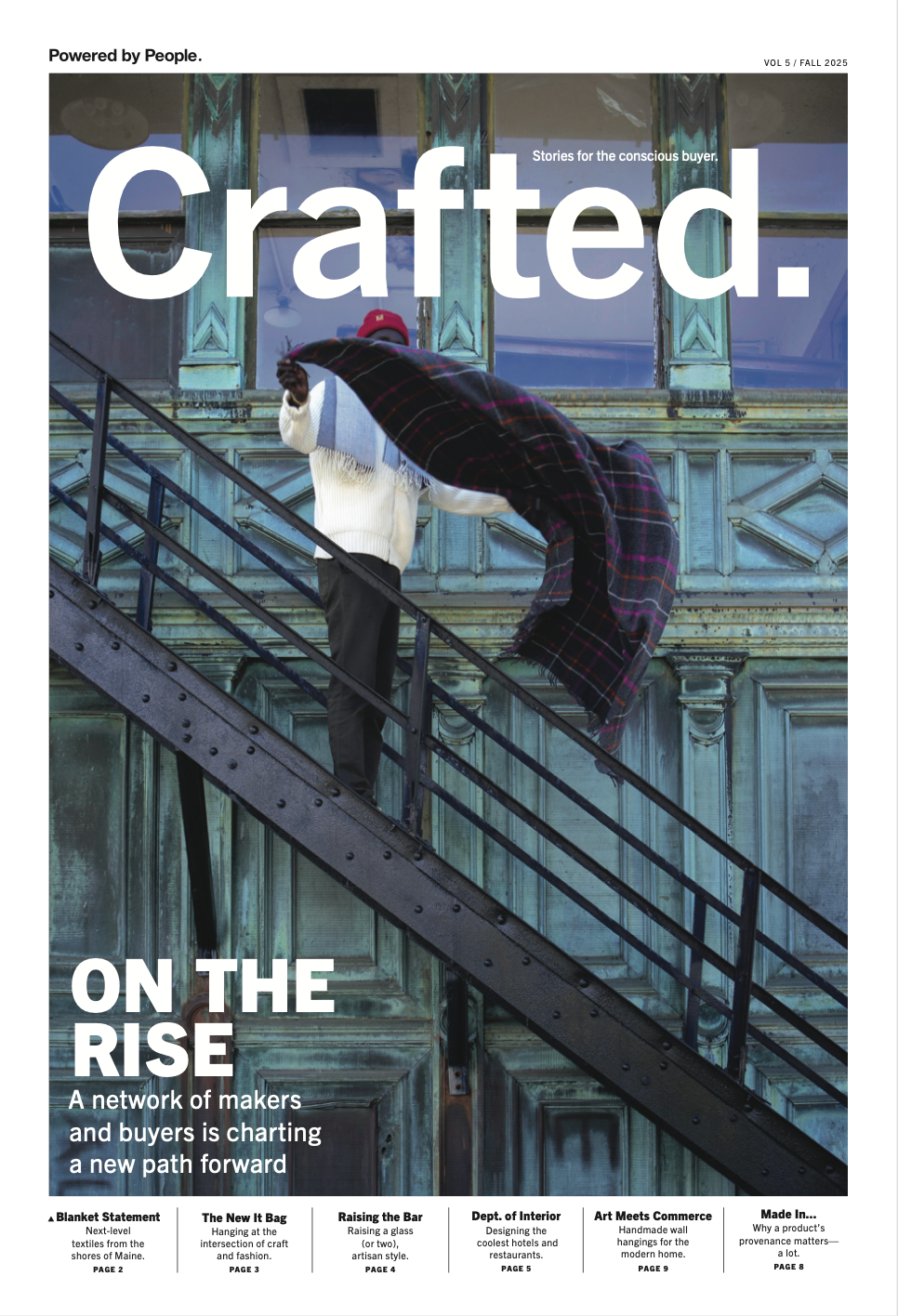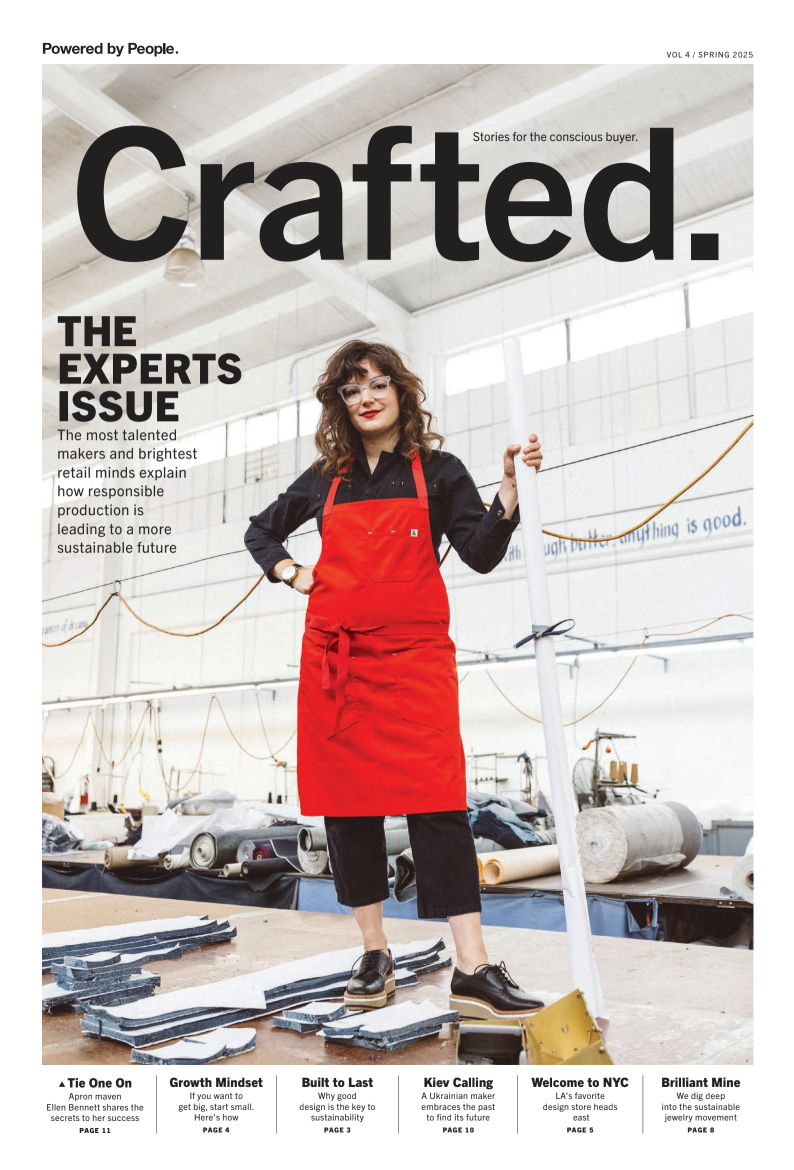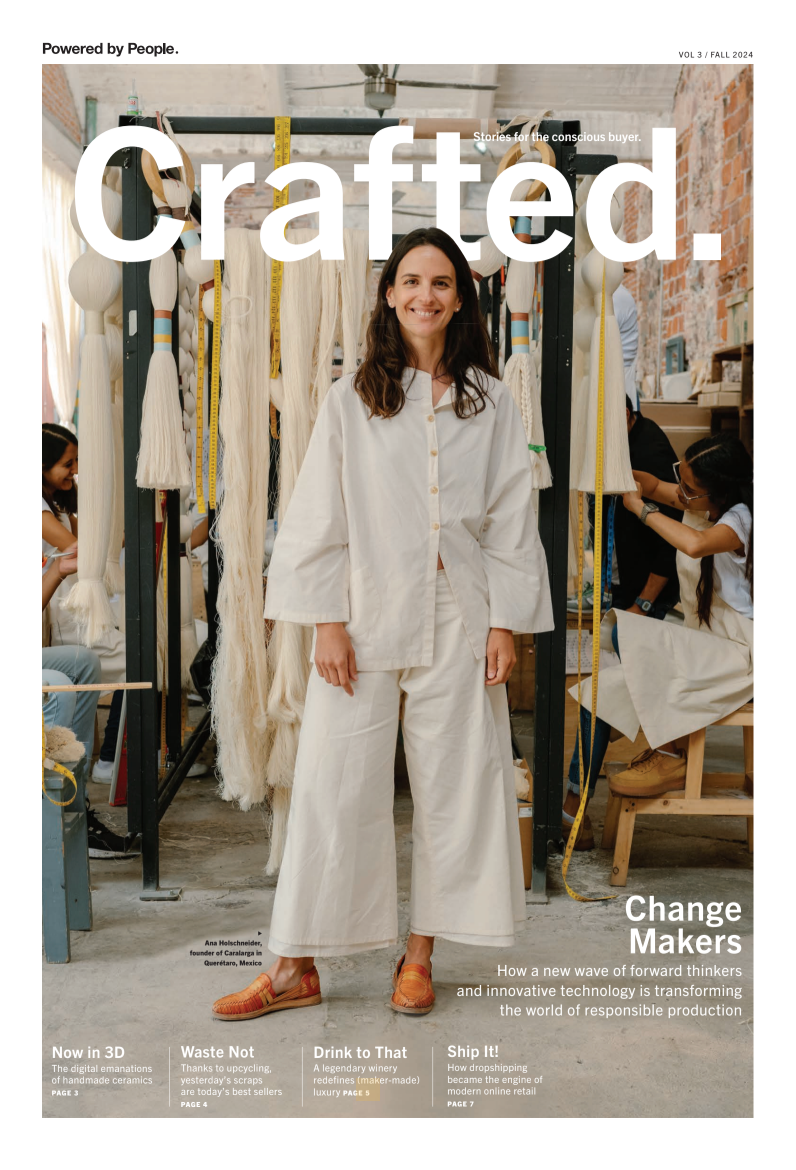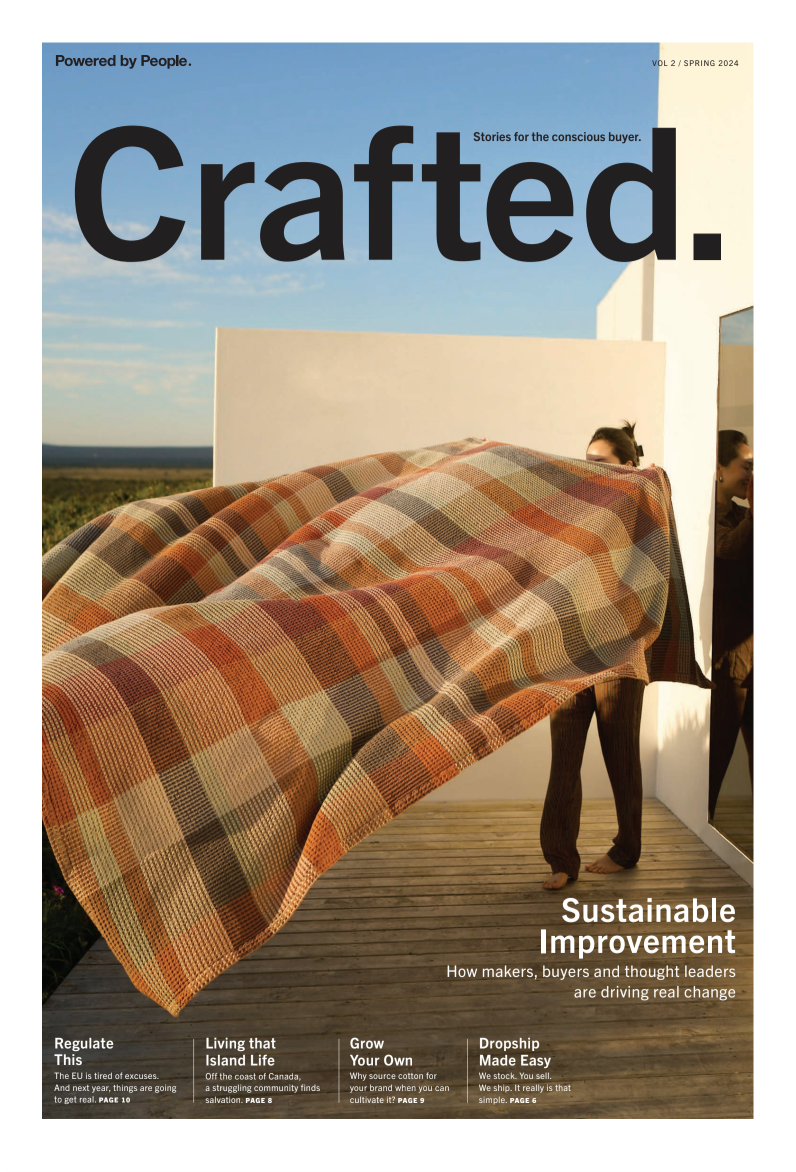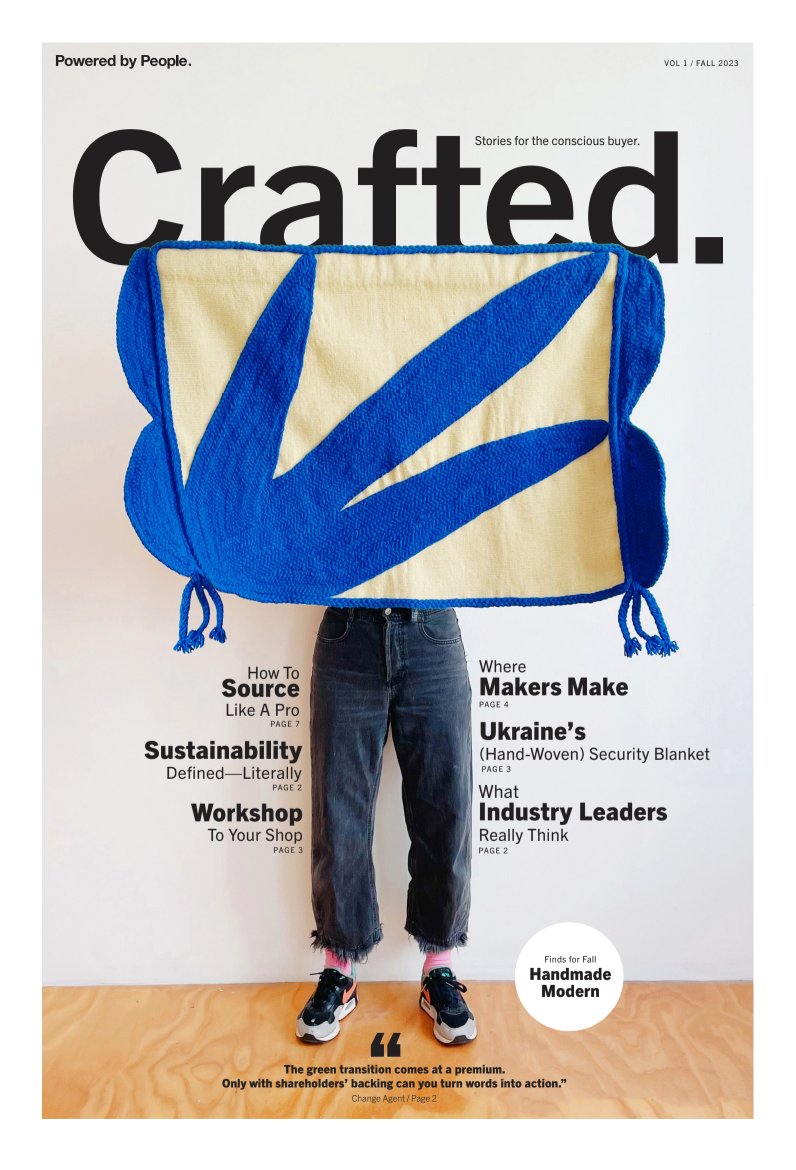Crafted.
More Stories
Crafted
Matter of Taste
By embracing maker-made crafts, Domaine Chandon is redefining the meaning of luxury.
Read moreEvery Step You Take
The advent of Community Commerce buyer, makers, and consumers get to call the shots.
Read morePast is Present
For Guatemalan maker Meema, upcycled-demin is a thread that runs through the family.
Read moreWhere NorCal Meets Scando
At SALT in Northern California, Angela Johansen embraces a Scandinavian design sensibility by sourcing a wold of makers
Read moreHow To Source Like a Pro–with Hawkins New York
Upstate vibes meet contemporary design at this unique retailer based in Hudson, NY.
Read moreWhen Organic Isn't Good Enough, Grow Your Own
Wayil by Algondones Mayas cultivates pre-Hispanic Cotton, preserving both environment and culture.
Read moreWork-Life Balance? You'll Find it at the Mill by the Sea
For South Africa's Mungo, some things are more important than chasing profits
Read moreLiberty and PBP, a match made in maker heaven
PBP Co-Founder Alison Phillips reflects on the exciting partnership between Liberty & Powered by People and her visit to London Design Week.
Read moreThe Dropship Effect
More choice, less risk. That’s what every retailer is after. We can help.
Read more